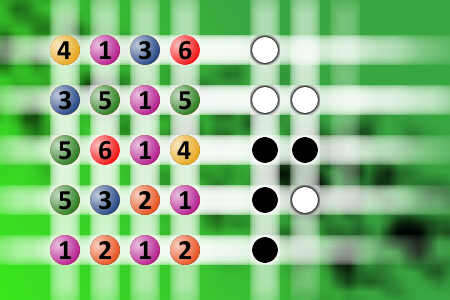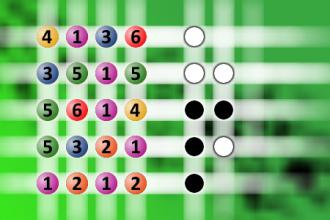Which is a winning combination of digits?
The computer chose a secret code (sequence of 4 digits from 1 to 6). Your goal is to find that code. Black circles indicate the number of hits on the right spot. White circles indicate the number of hits on the wrong spot.Correct answers: 29
The first user who solved this task is Djordje Timotijevic.
#brainteasers #mastermind

Jessi Klein: Sexy Librarian
I have brown hair and I wear these glasses, and I usually have my hair up in a bun, so the other thing guys have often said to me is, Youre like a sexy librarian. Youre like a sexy librarian type. Youre a sexy librarian. And Im like, Ive always thought of myself as more of a bookish whore. Sort of, you know, less of a nerd, more of a slut.

